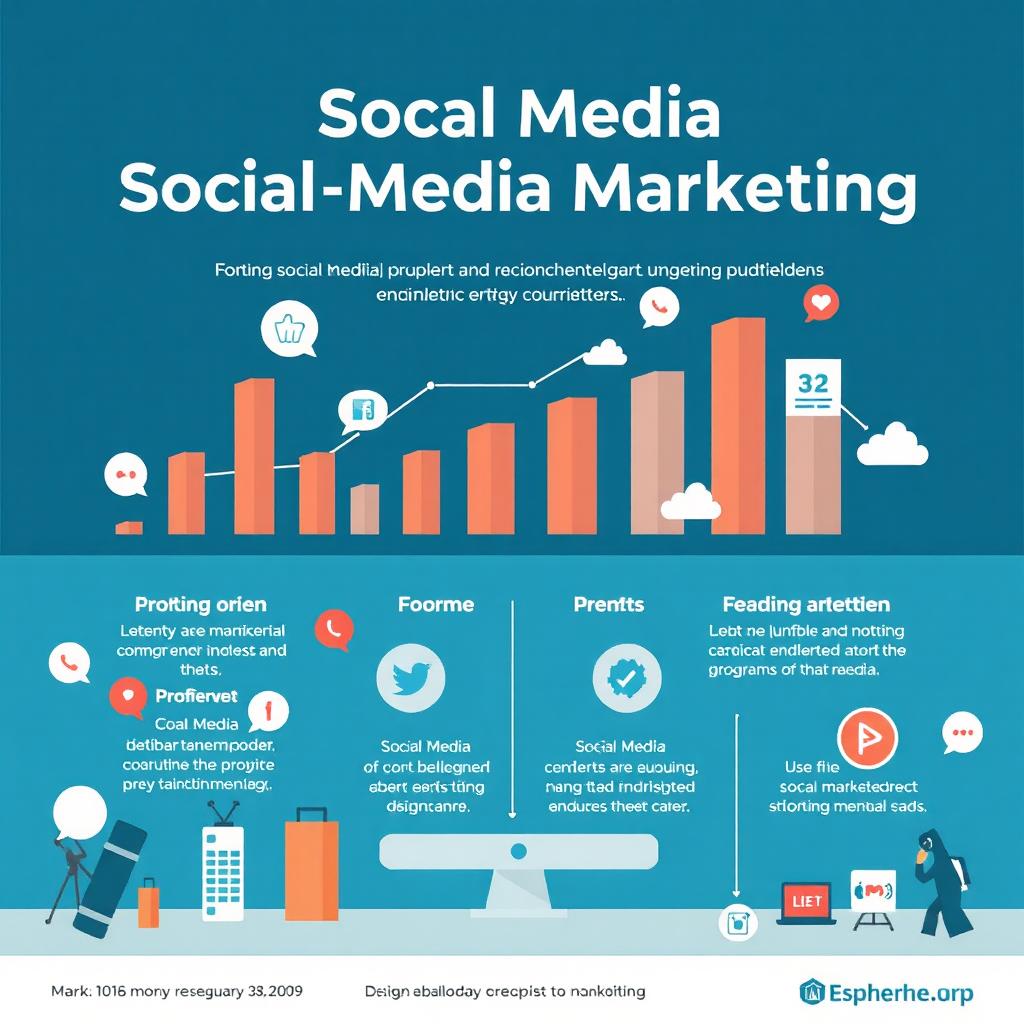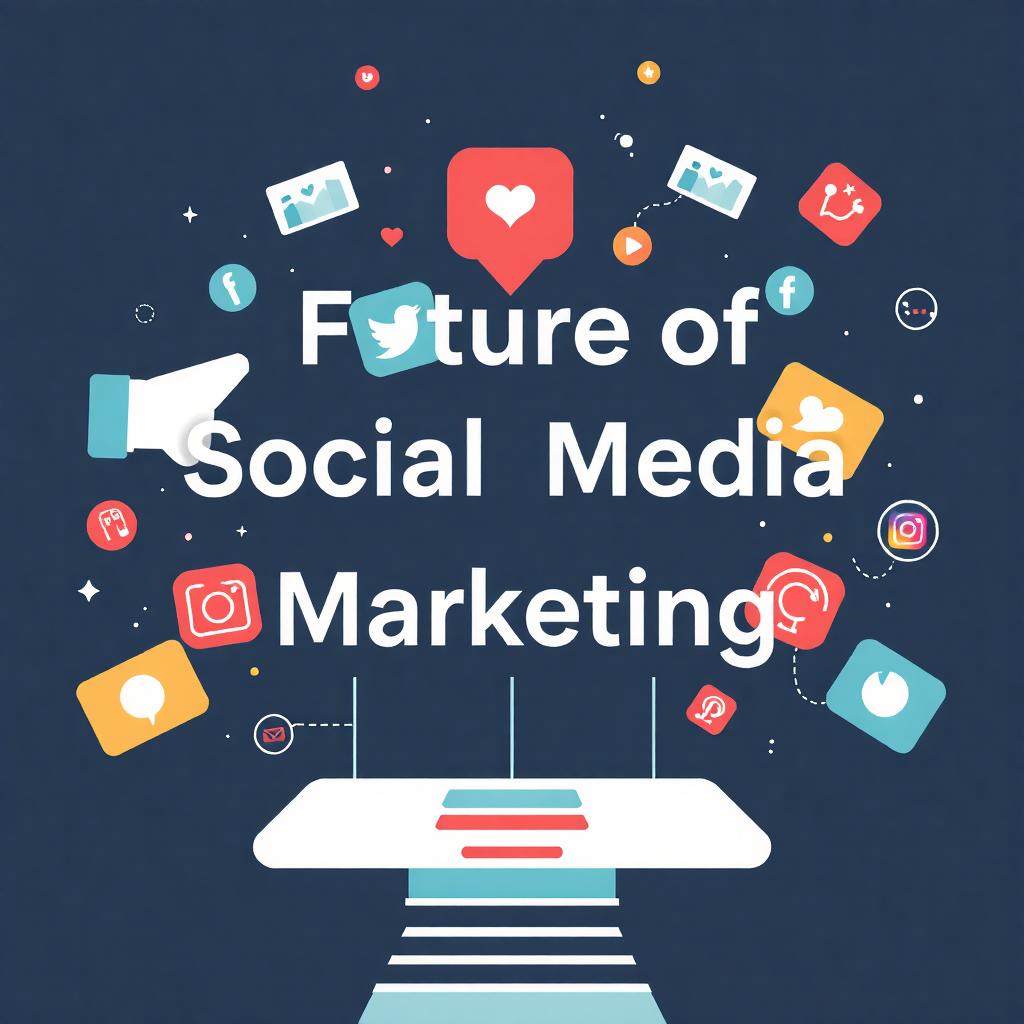As we approach 2025, Social Media Marketing Trends for 2025 are becoming increasingly important for businesses looking to stay competitive in a rapidly evolving digital landscape. With the rise of new technologies, changing consumer behaviors, and shifts in platform algorithms, understanding these trends is crucial for any marketing strategy.

Table of Contents
The Rise of Short-Form Video Content in 2025
One of the most significant Social Media Marketing Trends for 2025 is the continued rise of short-form video content. Platforms like TikTok and Instagram Reels have demonstrated the power of brief, engaging videos in capturing audience attention. According to a report by Statista, video content is expected to make up over 82% of all consumer internet traffic by 2025.
Actionable Tip: Brands should invest in creating short, high-quality videos that resonate with their target audience. Consider using behind-the-scenes footage, product demonstrations, or customer testimonials to create relatable content.
Learn more about video marketing strategies.
The Role of Artificial Intelligence in Social Media Marketing

Artificial Intelligence (AI) is set to revolutionize social media marketing in 2025. AI-driven tools can analyze user behavior and preferences, enabling brands to deliver personalized content. For instance, Facebook’s AI algorithms can help businesses target ads to specific demographics based on their online behavior.
Case Study: Coca-Cola has successfully leveraged AI to enhance customer engagement. By analyzing social media trends and consumer feedback, they created targeted campaigns that resonated with their audience, resulting in increased brand loyalty.
Explore AI tools for marketers.
Emphasis on Authenticity and Transparency in 2025
In 2025, consumers will increasingly demand authenticity and transparency from brands. This shift has been driven by a desire for genuine connections in a world saturated with curated content. According to a study by Edelman, 70% of consumers are more likely to purchase from a brand that demonstrates transparency.
Best Practice: Brands should focus on storytelling and sharing behind-the-scenes content that showcases their values and mission. Engaging with customers through live streams or Q&A sessions can also foster authenticity.
Read about building customer trust.
The Importance of Social Commerce in 2025
Social commerce is another trend that will dominate social media marketing in 2025. With platforms like Instagram and Facebook integrating shopping features, consumers are now more inclined to make purchases directly through social media.
Actionable Tip: Businesses should optimize their social media profiles for shopping experiences. Utilize features like shoppable posts and stories to drive conversions, and ensure product descriptions are engaging and informative.
Prioritizing Data Privacy in Social Media Marketing
As consumers become more aware of data privacy issues, brands must prioritize transparent data practices. In 2025, companies that emphasize data security will build stronger relationships with their customers.
Strategy: Implement clear privacy policies and communicate them effectively to your audience. Make it easy for customers to understand how their data will be used, and provide options to opt out of data collection where applicable.
Understand the importance of data privacy.
The Shift Towards Augmented Reality in Marketing
Augmented Reality (AR) is poised to transform social media marketing in 2025. AR technology allows consumers to interact with products in a virtual space, enhancing the shopping experience.
Example: IKEA has successfully implemented AR in their app, allowing customers to visualize how furniture will look in their homes before making a purchase. This technology not only engages users but also reduces the likelihood of returns.
Conclusion: Adapting to the Future of Social Media Marketing

Conclusion: Navigating the Future of Social Media Marketing
In conclusion, staying ahead of Social Media Marketing Trends for 2025 requires businesses to be adaptable, innovative, and customer-focused. The landscape of social media is constantly evolving, and companies must be ready to pivot their strategies based on emerging trends and consumer preferences. Here’s a more in-depth look at how embracing these trends can lead to sustainable success.
Embracing Short-Form Video Content
The popularity of short-form video content is not just a fleeting trend; it represents a fundamental shift in how audiences consume media. With platforms like TikTok, Instagram Reels, and YouTube Shorts leading the charge, brands need to prioritize creating engaging and authentic video content that captures attention within seconds. This format caters to the decreasing attention spans of consumers while providing an avenue for creativity and storytelling.
Practical Steps: Brands can adopt a variety of approaches to harness the power of short-form video:
- Behind-the-Scenes Footage: Showcase the people and processes behind your brand. This transparency builds trust and relatability.
- User-Generated Content (UGC): Encourage your audience to create and share content related to your brand. UGC not only fosters community engagement but also serves as authentic testimonials that resonate with potential customers.
- Interactive Challenges: Launch challenges that invite users to participate and share their versions, extending your reach organically.
As brands increasingly rely on user engagement, the integration of short-form videos into social media marketing strategies is essential for maintaining visibility and connection with audiences.
Leveraging Artificial Intelligence
Artificial Intelligence (AI) is transforming social media marketing, offering insights and automating tasks that were once time-consuming. From chatbots providing instant customer service to algorithms analyzing user behavior, AI empowers brands to personalize their marketing efforts at scale.
Benefits of AI in Social Media Marketing:
- Enhanced Customer Segmentation: AI can analyze vast amounts of data to identify patterns and segment customers more effectively. This allows for more tailored marketing messages and campaigns.
- Predictive Analytics: By analyzing past behaviors, AI can help predict future actions, enabling brands to anticipate customer needs and optimize their strategies accordingly.
- Content Creation: AI tools can assist in generating content ideas, optimizing posts for engagement, and even crafting posts based on trending topics and consumer interests.
As companies adopt AI-driven solutions, they can improve efficiency and deliver personalized experiences, ultimately fostering stronger customer relationships.
Promoting Authenticity and Transparency
In an era where consumers are increasingly skeptical of traditional advertising, promoting authenticity and transparency has become paramount. Brands that communicate openly and honestly with their audience are more likely to build trust and loyalty.
Strategies for Authentic Engagement:
- Share Real Stories: Highlighting customer success stories, testimonials, and experiences can humanize your brand and make it relatable.
- Addressing Mistakes: If your brand makes a mistake, own up to it. Transparency in acknowledging errors and taking corrective action fosters goodwill.
- Engaging with Feedback: Actively respond to comments and reviews on social media, showing your audience that their opinions matter and that you value their input.
By prioritizing authenticity, brands can differentiate themselves in a crowded marketplace and cultivate lasting relationships with their customers.
Enhancing Social Commerce
Social commerce is set to revolutionize the way consumers shop online. By integrating e-commerce features directly into social media platforms, brands can create seamless shopping experiences for their audiences.
Tips for Successful Social Commerce:
- Utilize Shoppable Posts: Create posts that allow users to purchase products directly from the platform. This eliminates friction in the buying process and can significantly boost conversion rates.
- Leverage Influencers: Partnering with influencers who align with your brand values can enhance credibility and drive sales. Influencers can showcase products authentically to their followers, leading to higher engagement and conversion.
- Host Live Shopping Events: Live streams that feature product demonstrations and exclusive offers create a sense of urgency and excitement, encouraging viewers to make purchases in real time.
As consumers increasingly turn to social media for their shopping needs, optimizing social commerce strategies is essential for capturing and retaining customers.
Prioritizing Data Privacy and Security
With growing concerns about data privacy, brands must prioritize transparency and security in their social media marketing efforts. Understanding and complying with regulations such as GDPR and CCPA is critical to maintaining customer trust.
Actions for Ensuring Data Privacy:
- Communicate Data Practices: Clearly explain how customer data is collected, used, and protected. Transparency in data handling fosters trust and reassures consumers.
- Implement Security Measures: Invest in robust cybersecurity measures to protect customer data from breaches and unauthorized access. This includes encryption, regular audits, and employee training.
- Obtain Consent: Ensure that customers are informed and consent to data collection practices. Providing options for opting out further enhances consumer trust.
By prioritizing data privacy, brands can build a strong foundation for long-term customer relationships while navigating the complexities of digital marketing.
Utilizing Augmented Reality (AR) Technology
The integration of Augmented Reality (AR) technology into social media marketing offers unique opportunities for brands to engage with their audience. AR allows consumers to interact with products in a virtual environment, providing an immersive experience that enhances purchasing decisions.
Examples of AR in Marketing:
- Virtual Try-Ons: Brands in the beauty and fashion industries can leverage AR to allow customers to virtually try on products before making a purchase.
- Interactive Experiences: Creating AR experiences that engage customers—such as gamified content or interactive product demonstrations—can significantly boost engagement rates.
- Enhanced Product Visualization: AR enables customers to visualize how products will look in their homes or in real life, helping them feel more confident in their purchase decisions.
As AR technology continues to evolve, brands that embrace this innovation will set themselves apart and create memorable experiences for their customers.
Final Thoughts
As we move forward into 2025, companies that prioritize these Social Media Marketing Trends will not only engage their audience more effectively but also foster long-lasting customer relationships. The intersection of technology, creativity, and consumer behavior will shape the future of marketing, and those who adapt to these changes will thrive in the digital landscape.
By investing in innovative strategies, brands can not only enhance their market presence but also create meaningful connections with their audience, driving growth and success in the coming years. Now is the time for businesses to embrace these trends, innovate their marketing approaches, and prepare for a future where social media continues to play a pivotal role in shaping consumer behavior and driving brand loyalty




adh86r